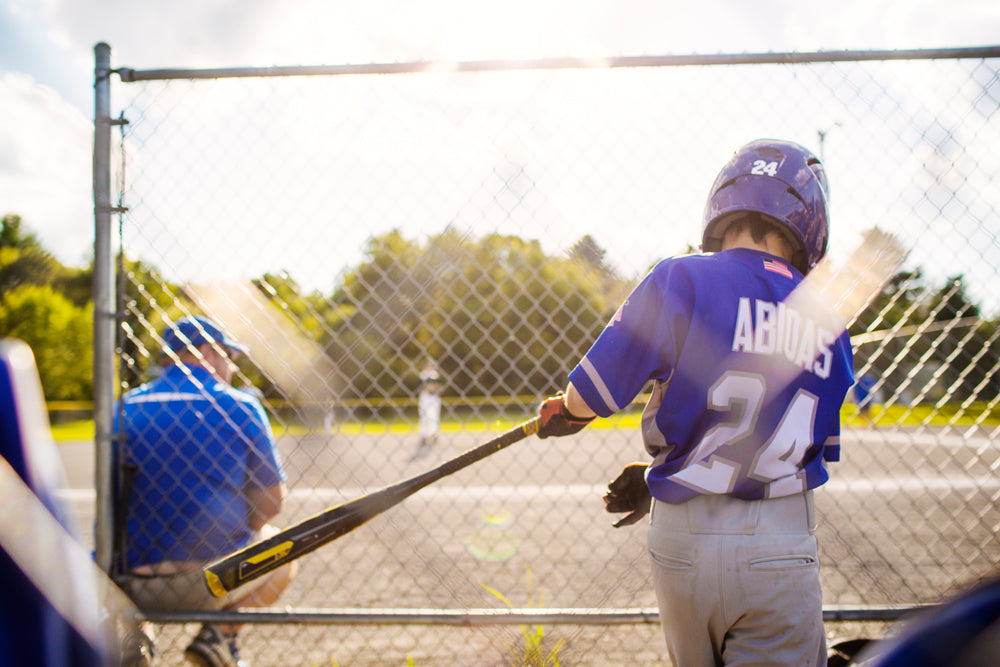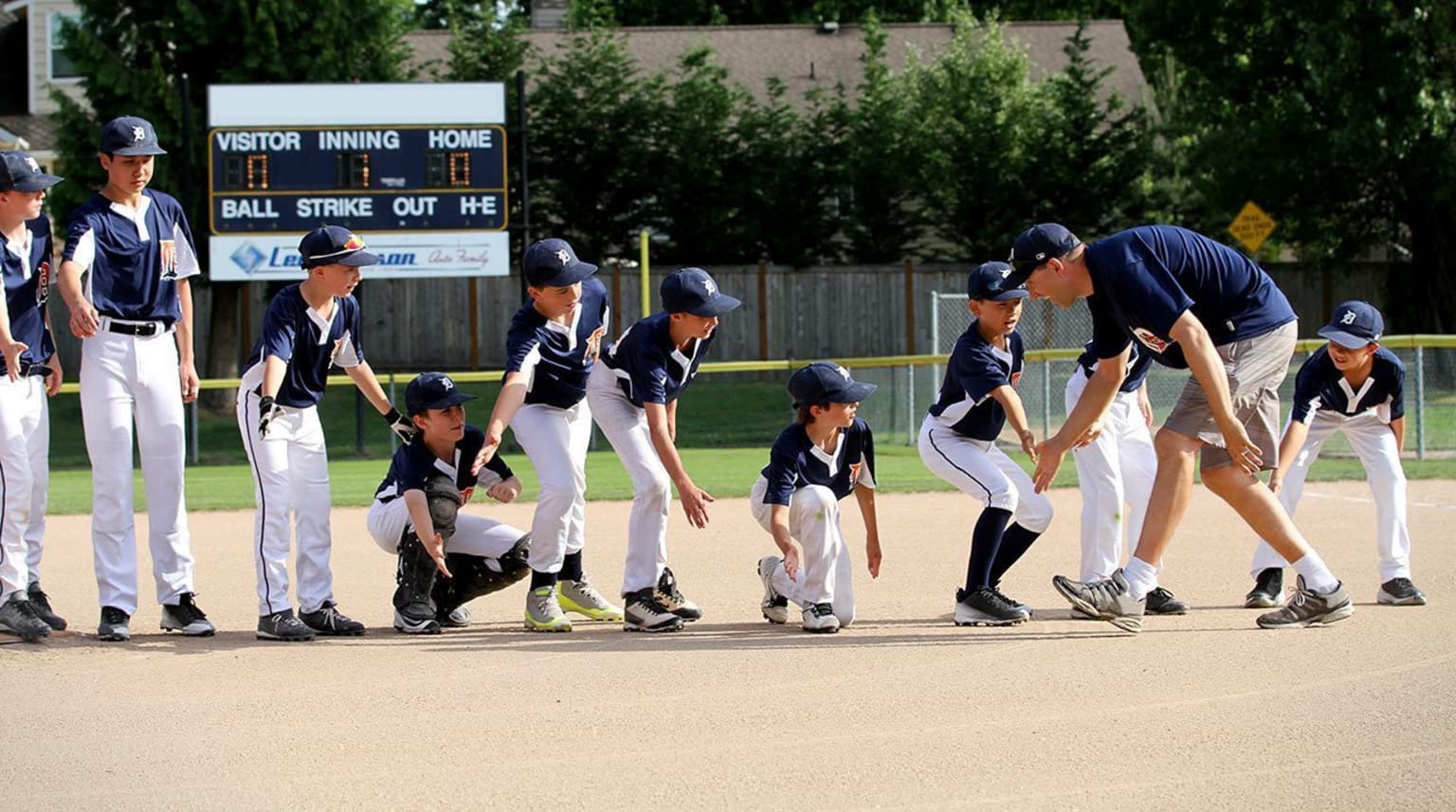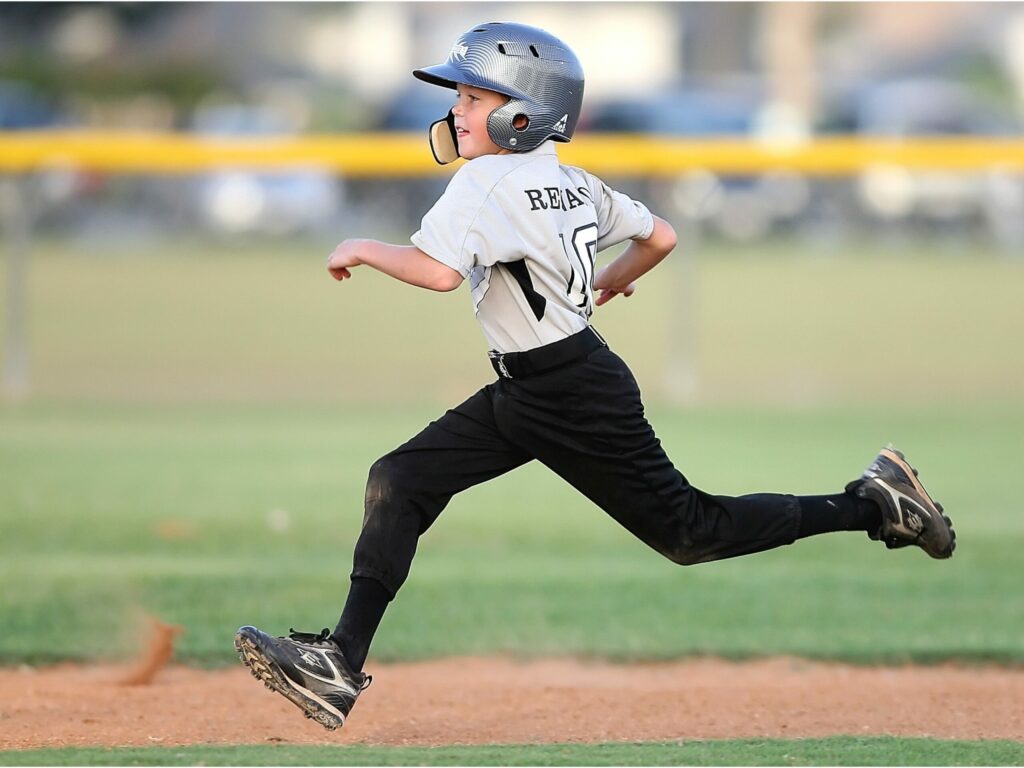
In youth baseball, nothing gets a player’s heart racing faster than when that hard little ball comes flying toward them. The fear of getting hit or failing to catch it can be a huge obstacle for young players, affecting their performance, enjoyment, and sometimes even their decision to stick with the sport. If not addressed, this fear can hold them back from reaching their full potential. As coaches, parents, or educators, it’s our job to help young players face and conquer this fear so they can enjoy the game and grow as athletes. In this post, we’ll explore strategies for helping young players overcome their fear of the ball and develop the confidence they need to excel on the field.
Responding to Fear with Empathy and Support

The first step in overcoming fear is recognizing that it’s a personal experience. Each player’s fears might look different, and what causes anxiety for one player might not even phase another. Understanding the root of the fear is key to addressing it.
Empathy is Key: Every player is different. Some might be afraid of getting hit, while others might be worried about making mistakes in front of their teammates. Taking the time to listen and understand each player’s specific fears is essential for helping them overcome these challenges.
Building Trust and Confidence
/cdn.vox-cdn.com/uploads/chorus_image/image/74140684/usa_today_26222322.0.jpg)
For a young player, their coach is more than just an instructor—they’re often a mentor and role model. The relationship between coach and player is crucial in building trust and confidence, and it’s essential in helping players overcome fear.
- Be Approachable: A coach should always have a friendly and open demeanor, fostering a safe and supportive environment where players feel comfortable sharing their fears and struggles.
- Lead by Example: Show players the behavior you want them to emulate. If you stay calm, composed, and fearless when working with the ball, they’re more likely to mirror those qualities.
- Individual Attention: Recognize each player’s unique progress and encourage them for their efforts, not just the outcomes.
Encouraging a Growth Mindset

It’s important to teach players to embrace mistakes and focus on improvement, not perfection.
- Praise the Process: Focus on effort and progress, not just the outcome. This helps players see value in learning and growing, regardless of immediate results.
- Set Achievable Milestones: Break down the skills of catching and fielding into manageable steps. Celebrate small successes along the way to build momentum.
- Normalize Mistakes: Mistakes are a part of the learning process. Helping players view mistakes as opportunities for growth can take the pressure off.
Progressive Skill Development: Taking Baby Steps Toward Mastery

Building a solid foundation of skills is essential for overcoming fear. Start with the basics and gradually build up to more complex techniques. This progressive approach helps players gain confidence as they master the fundamentals before moving on to more challenging tasks.
Starting with Basic Drills

- Stationary Target Practice: Start with simple drills where players focus on catching a stationary target. Use soft toss or slow targets to build their hand-eye coordination in a low-pressure environment.
- Drills with Gradual Movement: Once players are comfortable with stationary targets, begin introducing light movements like shuffling and tracking the ball. Progressing to pop flies and grounders gradually will help players get comfortable with more dynamic situations.
- Non-Competitive Practice: Begin practicing in a non-competitive setting where players can focus purely on improving their skills, not worrying about mistakes or being judged.
Advancing to More Complex Techniques

- Varying Drills and Angles: Introduce drills that come from different angles, helping players get used to the unpredictability of how the ball can approach them.
- Simulating Game Situations: Practice real game scenarios like soft tosses, live pitches, or situational fielding. This prepares players for what they’ll face during an actual game.
- Increasing Speed: Gradually increase the speed of the ball. As players’ confidence and skills grow, they’ll be better equipped to handle faster pitches and more intense situations.
Providing Constructive Feedback and Reinforcement

Feedback is essential for improvement, but it’s important to provide it in a way that supports the player’s growth and boosts their confidence.
- Timely Feedback: Immediate, specific corrections or praise will help players link their actions to the outcome.
- Video Analysis: Use video to capture and analyze players’ technique. This can help highlight both strengths and areas that need improvement, providing valuable insights for the player.
- Consistent Reinforcement: Praise specific actions and improvements, reinforcing positive habits and boosting morale.
Creating a Supportive Environment

Baseball is a team sport, and the support of teammates can make a huge difference in overcoming fear.
Teamwork and Camaraderie
- Team-Building Exercises: Incorporate activities that build a sense of community among players. When players feel connected, they are more likely to support each other and share a sense of accomplishment.
- Pair and Share Drills: Partner players up for drills. Practicing together not only builds skills but also trust and teamwork.
- Celebrate as a Team: Whether you win or lose, celebrating together helps foster a positive atmosphere and reinforces a sense of unity and shared experience.
Managing Mistakes Positively

- Debriefing: Use errors as learning opportunities. Discuss what happened, why it happened, and how to avoid it next time.
- The ‘Next Play’ Mentality: Encourage players to focus on the next opportunity rather than dwelling on mistakes. Quick recovery is key to staying mentally sharp.
- Recognize Perseverance: Acknowledge the effort and persistence that players put into the game. Success doesn’t come instantly—it’s the result of continuous effort over time.
Practical Tips for Coaches and Parents

Helping young players overcome their fear of the ball isn’t just about drills—it’s also about the way you communicate and the environment you create.
Communication Strategies

- Clear Instructions: Keep language simple and easy to understand, especially with younger players.
- Encourage Dialogue: Create an open environment where players feel comfortable sharing their fears, asking questions, and discussing their challenges.
- Active Listening: Pay attention to non-verbal cues and signs of distress. Providing the right support requires being attuned to a player’s emotional needs.
Incorporating Fun into Practice

- Skill-Based Competitions: Turn skill-building into friendly competition to keep players engaged and lighten the mood.
- Innovative Drills: Come up with creative games that incorporate catching and fielding skills but also make them fun and engaging.
- Surprise Games: Occasionally throw in an unexpected, fun activity like freeze tag or a water balloon fight to remind players that baseball is meant to be fun.
Encouraging Resilience and Perseverance

Resilience is a key trait that helps players push through challenges and come out stronger on the other side. Encouraging players to stick with it, even when they struggle, helps build their mental toughness.
- Stress the Journey: Let players know that success is built over time. Every mistake is a learning opportunity, and every small victory is worth celebrating.
- Physical Conditioning: Well-conditioned players are often more confident and resilient. Focus on physical fitness as part of mental preparation.
- Inspiring Stories: Share stories of professional players who overcame their own fears or challenges. These real-life examples can inspire young athletes to push through their own obstacles.
Frequently Asked Questions (FAQs)
1. How can I help a player who is afraid of getting hit by the ball?
Start by using soft toss drills or SWAX Training Baseballs to reduce the fear of impact. Gradually increase the speed of the ball as the player becomes more comfortable. Emphasize the importance of proper technique and positioning to minimize the risk of getting hit.
2. How can I create a supportive environment for young players?
Foster a positive team atmosphere where players support one another. Incorporate team-building exercises and ensure that mistakes are viewed as learning opportunities, not failures. Celebrate individual progress, no matter how small.
3. What are some fun drills to help players overcome fear?
Try innovative drills that simulate real game scenarios, but with a fun twist. Use soft toss games, partner drills, or surprise activities like water balloon toss to help players build skills in a non-competitive, low-pressure setting.
4. How can I help my child develop resilience in baseball?
Focus on the effort, not just the outcome. Encourage your child to embrace mistakes as part of the learning process and celebrate the perseverance it takes to improve. Share stories of athletes who faced challenges and pushed through, emphasizing that persistence leads to success.
Conclusion: The Power of Overcoming Fear in Baseball
Helping young players overcome their fear of the ball is about more than just improving their game—it’s about helping them grow as individuals. When players learn to confront their fears, they develop confidence that will carry over into every aspect of their lives. Baseball becomes not just a game, but a journey of personal growth, resilience, and joy.
As coaches, parents, and mentors, we have the unique opportunity to help shape this experience. By fostering a supportive environment, emphasizing teamwork, providing constructive feedback, and using a mix of traditional and innovative tools, we can guide young players toward becoming fearless on the field and beyond.

